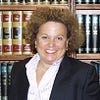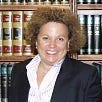Hybrid Workforce Technology Is Not Immune from e911 RegulationsHybrid Workforce Technology Is Not Immune from e911 Regulations
Here's why any communications technology professional should attend the Enterprise Connect 2023 panel "Managing e911 for the Hybrid Workforce"
February 13, 2023

The world of 911 calls, the underlying infrastructure that makes them possible, and the regulations that place new requirements on that infrastructure can all be daunting to those who aren’t already immersed in these issues. But the Enterprise Connect 2023 panel "Managing e911 for the Hybrid Workforce" is an informative and entertaining introduction that will boost your understanding of the technological and legal issues hybrid that workplaces must master, and give you a roadmap for action. And if history is any indication, the speakers will be so passionate and animated that they’ll start the kind of conversation that spills out onto the show floors and post-panel parties.
Consider this: The technologies that support calls made to 9-1-1 are changing. It’s a process, and is not happening all at once, but it is happening. However, the underlying technologies are largely irrelevant with respect to both Kari’s Law and RAY BAUM’S Act, so long as the call not only reaches the appropriate destination, but that the correct—and legally mandated—information reaches the Emergency Communications Center (ECC) as the law and supporting regulations require. That is, while, according to Mark Fletcher, ENP of 911inform, “Applications can now be delivered dynamically via web and HTML interfaces.”
This is absolutely true. However, it misses the other two obligations of Kari’s Law, which require both contemporaneous on-site notification and the provision of a valid call-back number. Without these vital bits of information, first responders are left without two of the key tools that they need to be dispatched to the right location in the shortest amount of time.
On the legal side, the issue of maintaining compliance is as critical as the issue of achieving compliance to begin with. The fact is that when the emergency response system fails and someone is hurt or dies as a result, litigation will follow. And this is true whether the call is made from a traditional wired phone, an IP phone, a mobile device or a WFH phone. As such, vendors who claim that they don’t need to be compliant are simply not considering the reality of the situation, nor are they recognizing the risks that non-compliance brings. Kari’s Law for sure applies to everyone in the communications technology chain, from the manufacturer to the distributor, to the installer to the end user and includes everyone in between.
Please join us as we discuss these relevant and important issues at Enterprise Connect! The venue may be air conditioned, but this session is always hot!
Enterprise Connect 2023 will be held from March 27-30 at the Gaylord Palms in Orlando, FL. You can check out the attendance options here and dive into our line-up of sessions and keynotes here.
About the Author
You May Also Like





